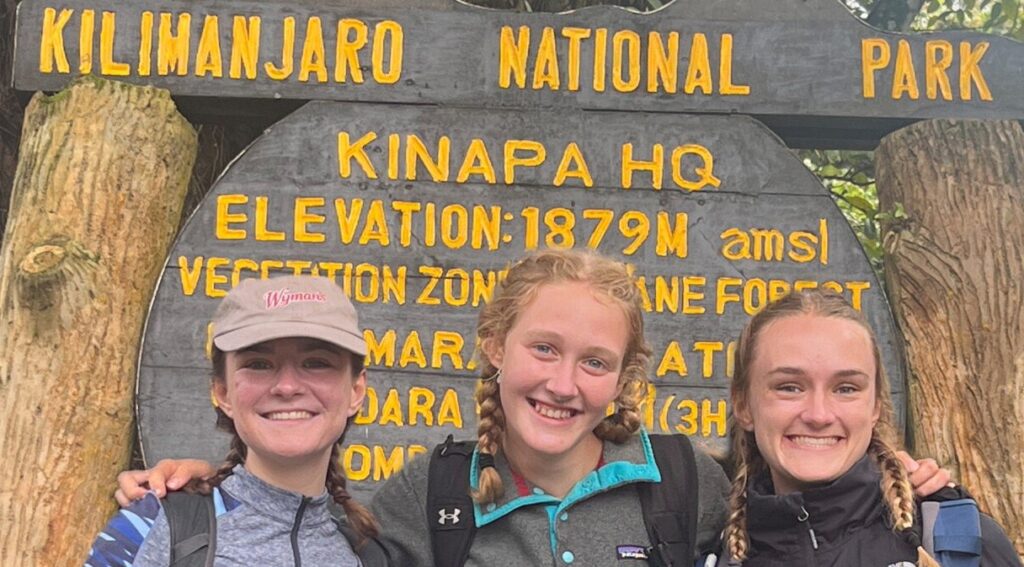A summer in Tanzania leads to a semester in Patagonia
October 3rd, 2023 | Africa, SIT Study Abroad
Gustavus Adolphus College junior Marit Isaacson studied abroad SIT Tanzania: Climate Change & Sustainability, Mt. Kilimanjaro to Zanzibar. Next, she heads to Patagonia and Antarctica with SIT. Her story was featured on her college website. It is reprinted here with permission.

When Marit Isaacson was trying to decide how to get the most out of the summer between her sophomore and junior years, she leaned on some Gustavus student services for advice. The Geography and Spanish double-major is also a member of the women’s swim team, and she figured the timing was right to take a brief break from her sport and burnish her post-college credentials.
She started in the Career Center, looking into internship possibilities, and the advisers there also encouraged her to see what study-abroad opportunities she might have. After speaking with people in the Center for International and Cultural Education (CICE), Isaacson decided to venture to Tanzania and Zanzibar to study sustainability and climate change.
Isaacson had 14 classmates in her six-week program but was the only Gustie, which allowed her to make many new connections. “The program included a ton of cool things and places, and we were able to talk to all these local experts” about various environmental and cultural topics, Isaacson said. “I thought traveling like that on my own would have been a lot harder, and everything just lined up with my schedule.”
Just doing the first six-week program made me wish I could do this for longer, so that’s what I’m doing next.
Marit Isaacson
The program ... featured classroom instruction and field-based seminars, and excursions to places including a seaweed farm and a marine area where students performed tasks such as measuring coral bleaching. “It was less of a traditional university, with all kinds of guest lecturers coming in to talk to us about their fields,” she said. “We spent time with local fishers and coral reef experts to talk about their livelihoods and working conditions. And we also got to do a lot of snorkeling, which was really cool.”
The students also spent two weeks in homestay visits, which exposed them to traditional Muslim cultural norms. “It was pretty different and very interesting to be immersed in that and see how the gender roles, especially, were very different than what we’re all used to in the United States,” Isaacson said.
... it all came back to how they didn’t have enough water, and how that was that affecting the health of the tribe, and their entire livelihoods, because they’re all either farmers or pastoralists who are affected by this lack of water.
Overall, the experience illuminated how people in other parts of the world have been affected by climate change, particularly as it pertains to how water supplies and usage have influenced the local lifestyles and forced them to keep adapting any number of practices. “In pretty much all cases, it all came back to how they didn’t have enough water, and how that was that affecting the health of the tribe, and their entire livelihoods, because they’re all either farmers or pastoralists who are affected by this lack of water,” Isaacson said. “It actually influences the gender roles, because women are the ones who are responsible for going to get the water, so they have to go farther and farther for it, which affects their ability to stay in school.”
Now that she’s concluded this summer adventure, Isaacson is jumping right into another one. This fall she’ll be in Patagonia in another SIT program that examines humans’ interactions with the environment. “I went into last summer trying to figure out whether I should do an internship or study abroad, and [my advisers] told me either would be beneficial,” she said. “Just doing the first six-week program made me wish I could do this for longer, so that’s what I’m doing next.”
